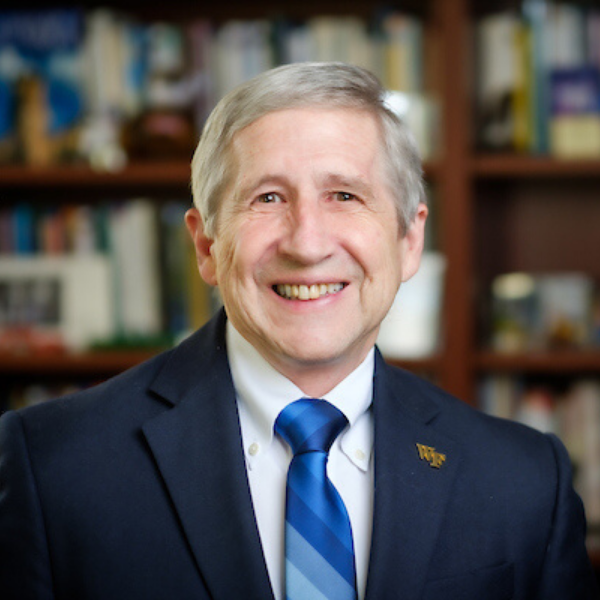Take 5 with Sam Gladding
The Wake Forest community sadly lost Dr. Gladding in December 2021 after a short illness. You can read about his amazing life, particularly his accomplishments and contributions to the counseling field in his obituary here. We also hope you’ll read the words of wisdom he shared with us below in his Take 5 profile compiled in 2019.
Sam Gladding (’67, MA ’71)
Professor in the Department of Counseling at Wake Forest University
1. How do you define success for yourself? What has helped you to be successful?

Success to me is doing the best at what I love (teaching at Wake Forest). Passion and a lot of hard work (e.g., reading, writing) help me be successful.
2. Think of a time that you faced a challenge, obstacle, or roadblock. How did you get through that and what did you learn?
I had a hard time breaking into an academic setting. I sent almost 200 letters out for open academic position. I just kept thinking I was qualified and it was a matter of finding a right place and it would take time. The result of my almost 200 letters over two years was I got three interviews and was offered an assistant professorship in two out of the three. I later met my wife in the city where I settled — I went from North Carolina (Rockingham Community College) to Connecticut (Fairfield University).
3. Who are your people (either by name or role) who help you to be successful/confident/intentional/reflective/any other descriptor you want to use? And how have they helped you?
A professor at Wake Forest who started the counseling program, Dr. Thomas M. Elmore, helped me a lot. He wrote countless letters for me (b.c.- before computers) and encouraged me. His belief and support gave me confidence.
4. How did you find your people?
I simply got out and met people every chance I got. I did not know anyone in Connecticut when I took the job at Fairfield. I knew tons of people when I left to take another academic position. They even gave me a party.
5. What advice would you give to Wake Forest students as they look for their people?
“Birds of a feather flock.” Find people you share an interest with, not necessarily those who are “cool.” Don’t be afraid to voice your ideas verbally or in writing. Find two or three (at most) organizations that you are passionate about and immerse yourself in them (along with your academics, of course).
